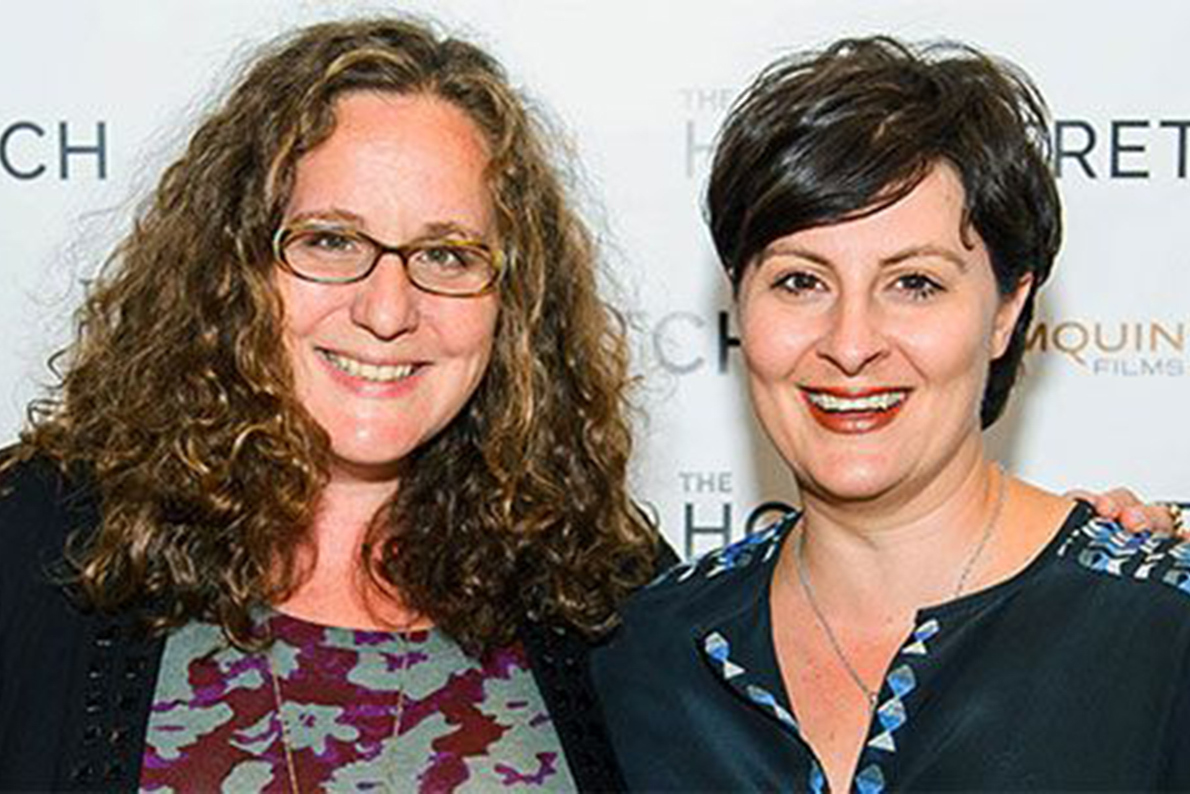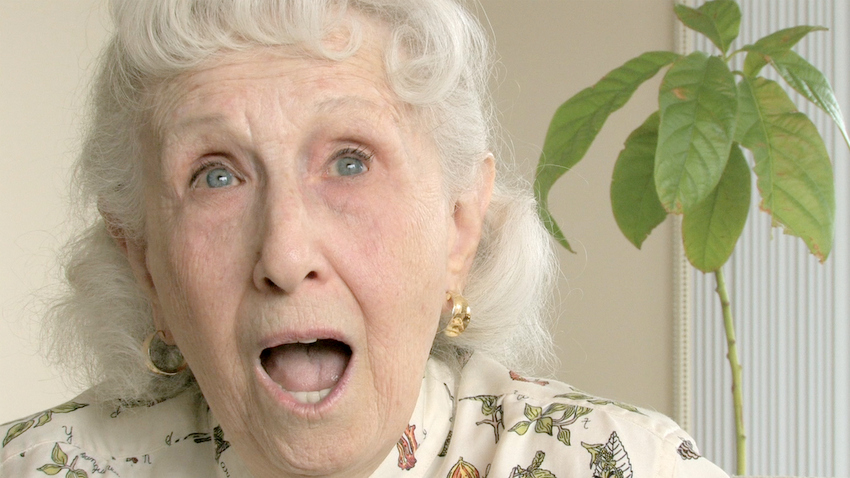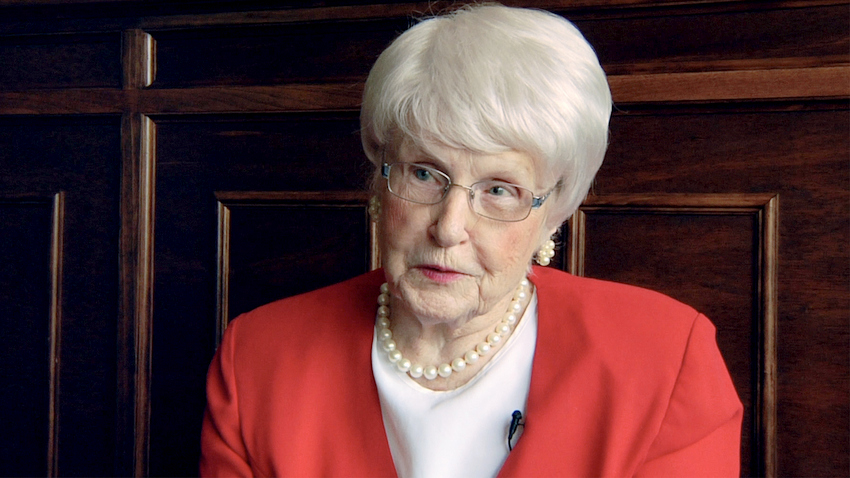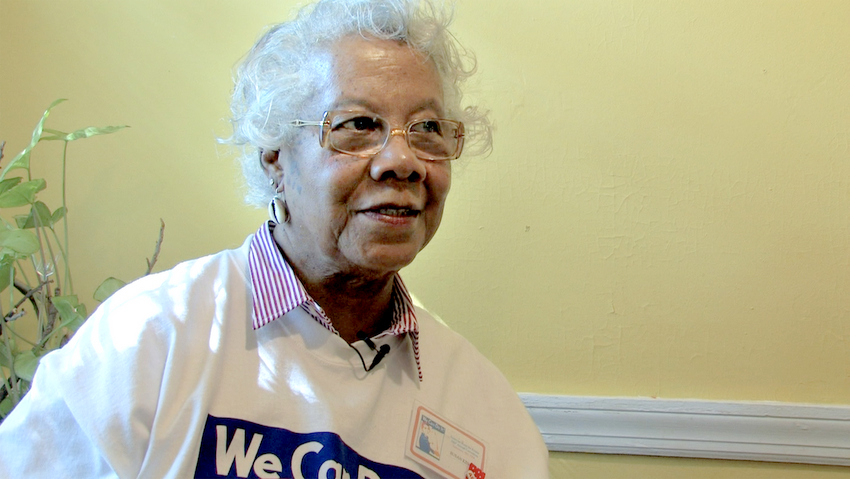
Anne de Mare and Kirsten Kelly say, “as documentary filmmakers, we have a deep interest in women’s stories and have a drive to bring them to more and more audiences. The first seeds for this project began back in 2010, when we produced and directed a filmed oral history archive for NYU’s Tamiment Library Labor Archives”.
We collected personal histories from 48 real-life Rosie, the Riveters, who were in their 80s and 90s. We were surprised and deeply moved by their stories. The stories of breaking barriers of gender, race, and economics during wartime. During this seminal Rosie era. And, then how this moment in time for them so greatly informed the rest of their lives.
Kirsten’s grandmother, Bonnie Gifford, was a Rosie working in an army engine manufacturing factory in Michigan. She is included in the NYU project. Our partner and fellow producer Elizabeth Hemmerdinger had been fascinated by the iconic story of Rosie for a long time. She had even written an award-winning play about the subject. Then, she was in graduate school at NYU – and the archive was her inspiration.

We became more and more inspired as we interviewed more women. Then, we realized that we had never heard so much of this extraordinary history. We wanted to get these stories to a wide audience. In front and center in schools and museums – we wanted them heard loudly!
As fans of animation, we knew this art form could combine brilliantly with their filmed interviews of today. As an exciting and emotional way to bring pieces of their past to life. Danielle Ash was one of the first animators recommended to us. We immediately fell in love with her unique style of constructed cardboard animation. The rest, as they say, is history!
It was amazing! As we looked for subjects, many of the people we spoke with had a personal connection to a Rosie. A distant aunt, a grandmother, a neighbor’s wife. Over 6 million women had entered the industrial workforce during WWII. So, they were literally everywhere once we began to look.
Kirsten found Esther Horne in a multi-generational theater company. She was working with in NYC called Roots and Branches. We first met Susan Taylor King when we brought a group of Rosies together. At the Glenn L. Martin Maryland Aviation Museum in Baltimore. We interviewed Mildred Crow Sargent in Nashville, TN. At a meeting of the American Rosie the Riveter Association in 2010.

indieactivity : Did you start writing with a cast in mind?
Anne & Kirsten : Esther, Susan and Millie all represented such dynamic, yet every-woman stories. It was clear to us that we wanted to weave their very different experiences together into one rich Rosie project. We originally thought we would have the whole film be animated. But, as we began working with the animated footage, we kept being drawn to the women themselves. These were now, in their older age recounting their experiences. And having this original interview documentary footage is what deepens the emotional arc of the stories.
indieactivity : How long did you take to complete the script? (Do you have a writing process?)
Anne & Kirsten : Anne and Kirsten would work on the script, and then Danielle would come in with pieces of animation. We were constantly growing and adapting the script as the animated sequences were being made. It was a true collaboration between writing and animation.
The project took five years to make as we all had other gigs and projects along the way. This was our passion project, and Danielle Ash’s amazing stop motion animation takes incredible amounts of time to do. We all three just kept working on it whenever we could.
indieactivity : What was your first project?
Anne & Kirsten : Our first documentary project was a feature film, Asparagus! Stalking the American Life, which premiered at Full Frame Documentary Film Festival.

indieactivity : Which scene (that made the cut) was the hardest to shoot?
Anne & Kirsten : The Hell Diver dog fighting scene where the airplane gets shot and ends up on fire while flying was incredibly difficult to animate in stop motion.
indieactivity : What worked better in this latest production that mightn’t have worked so well in the last one you did?
Anne & Kirsten : With two feature award-winning documentaries under our belts, we felt the permission to be much more playful and adventurous with the style within this documentary artform.
indieactivity: Is there anything about the independent filmmaking business that you struggle with?
Anne & Kirsten : Sustainability for documentary filmmakers is the biggest struggle for us, and for many independent documentary filmmakers. Funding has shrunken dramatically in the last five years, and so many independent filmmakers are having to shrink to unrealistic budgets in order to finish films. Mid-career filmmakers are just not able to make it work anymore, especially while balancing life and families, and many who are in the prime of their filmmaking skills and careers are leaving for other careers or jobs.
‘The Girl with the Rivet Gun’ shares the WWII stories of 3 unsung female heroes
indieactivity : Where do you think your strengths lie as a filmmaker?
Anne & Kirsten : Having both come from a theatre background we are very comfortable working with people when filming. We are able to provide a comfortable, yet adventurous interview experience for our subjects and love spending lots of time with them to listen, question and walk with them through the telling of their stories. We are also both very strong emotional storytellers, with a breadth of experience writing, directing and producing, and we bring this to all of our development, editorial and edit processes.
indieactivity : How was the film financed?
Anne & Kirsten : Like many independent projects, financing this film has been a long process. We worked with a combination of foundation funding (huge thanks to our biggest donors the Hite Foundation and Philip & Cheryl Milstein Foundation), private donations, and private equity. We have to give a big shout out to our fellow producer, Elizabeth Hemmerdinger of Providence Productions, who has been a tireless advocate for this project with funders, as well as for the the original Rosie the Riveter oral history project at NYU, which was born out of her passion for wanting to get these stories out into the mainstream conversation about our history.
indieactivity : What do you hope audiences get from your film?
Anne & Kirsten : We hope to inspire audiences, especially young women and girls, to understand how important women have been to our collective history, and empower girls and boys alike to see women’s power and worth in the world. But we also believe that these stories are for all of us; there are so many people our larger society overlooks – especially elderly women – and they have so much to teach us about ourselves and our world.
indieactivity : What else have you got in the works?
Anne & Kirsten : We are currently in production together for a feature documentary around men’s activism to help end violence against women that should premiere in 2021/2022. And, after The Girl with the Rivet Gun, we plan to keep making short animated films that tell amazing, strong, unexpected and often unheard stories of women in the world!
Tell us what you think of the interview with Anne de Mare & Kirsten Kelly. What do you think of it? What ideas did you get? Do you have any suggestions? Or did it help you? Lets have your comments below and/or on Facebook or Instagram! Or join me on Twitter @oladapobamidele
Follow The Girl with the Rivet Gun on Social Media
Website
IMDb
Instagram
MORE STORIES FOR YOU
In Camera by Naqqash Khlalid Launch on VOD April 29
Naqqash Khlalid’s Directs Nabhan Rizwan. In Camera stars an EE BAFTA Rising Star Award Nominee.
2025 Philip K. Dick Sci-Fi Film Festival Award Winners Announced
Vanessa Ly’s Memories of the Future Awarded Best PKD Feature
Dreaming of You by Jack McCafferty Debuts VOD & DVD for April Release
Freestyle Acquires “Dreaming of You” for April 15th Release
Hello Stranger by Paul Raschid set for London Games Festival & BIFFF
The film Is set for an April 10th Premiere at The Genesis Cinema in London (LGF) and BIFFF
Daydreamers Official Trailer by Timothy Linh Bui: Released by Dark Star Pictures
Daydreamers Vietnamese Vampire Thriller – May 2nd release
Afternooner by The Harrow Brothers: Funniest Movie of the Decade on VOD & DVD April
Freestyle Acquires “Afternooner” for April Release









